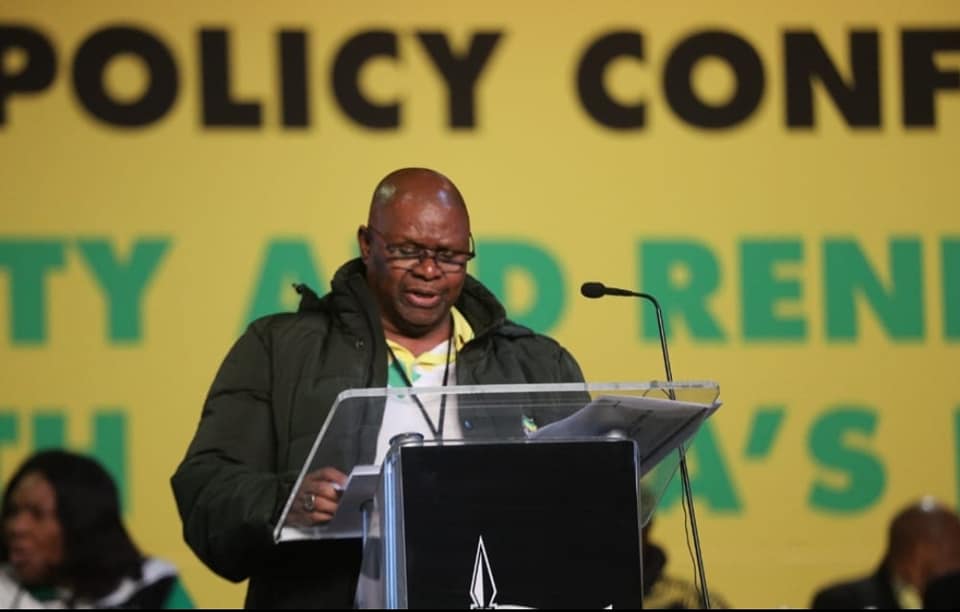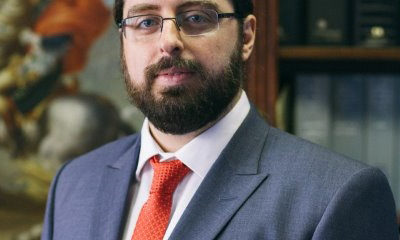
News

ANC’s summit shows party “locked in revolutionary mode”
The ruling party firmly placed itself in opposition to Israel while at the same time setting up camp with “rogue” nations like Venezuela, Iran, Cuba, Syria, and Russia at the African National Congress’ (ANC’s) sixth National Policy Conference last weekend. However, there was also talk of upgrading South Africa’s defence against terrorism.
The conference, held from 29 to 31 July, was set up to examine progress on policy since the last national conference in 2017 and work on recommendations to be tabled at the next national conference in December.
Speaking to the media, the party’s international relations sub-committee chairperson, Lindiwe Zulu, said, “What’s also important here is that we reaffirmed the ANC’s 54th conference resolution for downgrading South Africa’s relations with Israel, and we supported the cause of lifting punitive and cruel sanctions against Venezuela, Iran, Cuba, Syria and elsewhere, where such sanctions have been imposed unilaterally and unjustly.
“One of the issues discussed at length was the position of Israel at the AU [African Union],” she said. “We confirmed that as far as South Africa was concerned, we still believe that Israel shouldn’t be given the status that it has been calling for at the AU, and that South Africa needs to continue to fight for the Palestinians.”
“We also spoke about the ICC [International Criminal Court], and we said that we can use the ICC to address Israel’s actions. On the two-state solution, we were asking ourselves the question whether this was still viable, particularly when you see that Israel has been taking more and more land illegally.”
Said political analyst Daniel Silke, “The ANC remains largely locked into a revolutionary mode. There seems to be an increasing gulf between a much more even-handed approach to global affairs and this more revolutionary approach that I think has been entrenched in the past year or so. It would seem as though the more radical approach is driven partially by an attempt to find unity within the ANC. Foreign policy isn’t a major issue in the ANC, but it can bring some of these warring factions together and it’s quite easy in a sense to use Israel as a political football, to support the Palestinians, Cubans, and Venezuelans, and ultimately also seem pretty acquiescent of Vladimir Putin.
“All of these issues help the ANC find common ground internally,” he says. “It can’t find common ground on domestic policy issues, personality differences, or the outcome of the state capture report, but it can find common ground on bashing Israel or support for Cuba.
“It’s an easy ‘win-win’ for those who are radical, dislike Israel, or are still ‘revolutionary’ in how they see the world. The foreign policy issues are of concern. They fail to adopt an even-handed approach in global affairs, and they will shift South Africa to a more radical grouping of countries should this continue. It may well be that US [United States] Secretary of State Anthony Blinken’s visit to South Africa [from 7 to 9 August] could be an attempt by the US to shift some of this rhetoric on broad-based foreign policy issues.”
Local political analyst Steven Gruzd said, “We have heard this all before, except perhaps that the ANC sees the ICC as a forum to punish Israel. The ANC is immensely loyal to its international friends from the days of struggle. I find it ironic that the ANC so favoured sanctions when applied to South Africa, yet is so against them when applied to rogue states. This plays into its anti-West rhetoric.”
“We’re outraged yet not surprised by Zulu’s obsessive compulsion with Israel, prioritised over all other international issues, where she once again singled out the Jewish State,” said South African Zionist Federation Chairperson Rowan Polovin.
“South Africa’s international credibility is increasingly being diminished by Luthuli House’s ongoing posturing toward totalitarian dictatorships through its anti-West rhetoric,” Polovin said. “Contrary to Zulu’s comments, much of Africa and the Arab world is becoming friendlier with Israel.
“We call on the South African government to align its foreign policy with the values of the Constitution, to focus on benefitting the people of South Africa, and to focus on dialogue and engagement with Israel,” said Polovin. “South Africa’s position is isolating us from the rest of the world.”
The conference also addressed the threat of terrorism. Mbangiseni David Mahlobo, the chairperson of the ANC’s peace and transformation sub-committee, said that South Africa had a serious role to play in ensuring stability not only in Southern Africa, but in the rest of the African continent.
Mahlobo said that though South Africa wasn’t worried about attacks, the country couldn’t be used as a safe haven for recruiting, planning, and funding terrorist activities. “Our borders remain porous,” he said, and security must be tightened.
He pointed out that legislation regarding cyberspace needed to be strengthened, and that South African policies need to be readjusted to ensure that there are no loopholes for those seeking to take advantage of lack of legislation.
“This is a step in the right direction, however a lot still needs to be done,” said the Community Security Organisation’s Jevon Greenblatt. “At least the ANC is acknowledging concern that terrorism is a factor in South Africa, but proactive steps taken to prevent terrorism are much more important than acknowledging its existence.”
Photo Credit: MyANC Facebook page










